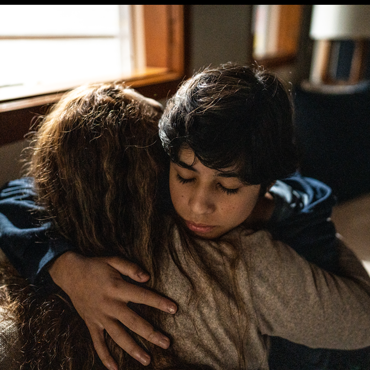Suicide is second leading cause of death among U.S. teens, but with awareness, early support, and access to care, many young lives can be saved. As pediatricians, we know how difficult—and frightening—it can feel to talk about suicide, but open conversation and early action truly make a difference.
Why This Matters for Every Family
- Rates are rising. More adolescents are reporting depression, anxiety, and thoughts of suicide than ever before.
- Many never tell anyone unless asked. A teen may seem “fine” on the outside while quietly struggling inside.
- Parents make a difference. Strong, caring relationships are one of the most powerful protective factors we know.
How Our Clinic Offers Help
To support early detection, Allegro provides a validated mental health screening tool at routine checkups and mental health visits for all patients 12 years and older. If a screen suggests risk, we talk with you and your child right away, create a safety plan, and connect you with appropriate resources.
At Allegro Pediatrics, we are committed to supporting your child’s mental health and your family’s overall well-being. However, it’s important to recognize that we are not equipped to provide crisis-level care. If your child is in immediate danger or experiencing active suicidal thoughts, please seek help right away by contacting Seattle Children’s Psychiatric Urgent Care, calling or texting 988, or dialing 911 if your child has already attempted suicide or needs urgent medical attention.
Warning Signs to Watch For
Every child is different, but call us or seek help if you notice:
- Talking or writing about death or hopelessness
- Withdrawing from friends or activities
- Sudden changes in sleep, appetite, or mood
- Giving away possessions or saying “you’d be better off without me”
- Intense stress from bullying, break-ups, or academic pressure
If something feels “off,” trust your instincts. Asking directly about suicide will not plant the idea. It shows you care and opens a door to help.
What Parents Can Do
- Talk—and keep talking.
- Use open-ended questions: “How are you feeling about school these days?”
- Listen more than you speak.
- Secure your home.
- Store firearms locked and unloaded.
- Keep medications, alcohol, and sharp objects safely out of reach.
- Model healthy coping.
- Show your child that it’s okay to ask for help, take breaks, and manage stress.
- Know where to turn in a crisis.
- If your teen is in immediate danger, call 988 (Suicide & Crisis Lifeline) or 911.
Trusted Resources
- 988 Suicide & Crisis Lifeline – Call or text 988 anytime.
- Crisis Text Line – Text HOME to 741741.
- Psychiatric Urgent Care – Seattle Children’s Hospital
- American Foundation for Suicide Prevention (AFSP) – Parent guides, local support groups, and community programs: afsp.org/get-help
- “More Than Sad” – AFSP’s program to help parents and teens recognize depression and start conversations.
A Message of Hope
Suicide is complex and never the fault of a single person or family. Most young people who struggle with suicidal thoughts can—and do—recover with support. You don’t need perfect words; you just need to be present, ask, and listen.
If you ever worry about your child’s safety, call 988 right away.
Together we can nurture the protective factors our kids need most: supportive relationships, a connected community, and reliable access to mental-health and crisis services.
Keep Reading
View All Posts
Mental Health Awareness
It is important to understand how to support your child's mental wellness and what to look for as potential signs of a mental health problem.


